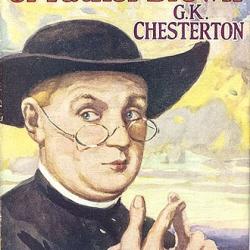 Three cheers for Rev. Dudley Rutherford.
Three cheers for Rev. Dudley Rutherford.
A few months ago, Rutherford, the pastor of the Shepherd of the Hills Church in Porter Ranch, California, sat down in front of a camera and told the inspiring story behind the writing of "The Star-Spangled Banner." (The video has been removed from YouTube).
Rutherford delivered a dramatic rendition of how American troops during the War of 1812 (which he confused with the American Revolution) defended Fort McHenry (which he repeatedly referred to as "Fort Henry") from an attack by the British navy positioned in the Chesapeake Bay.
Immediately following the attack, a lawyer named Francis Scott Key, who had watched the battle from a British war vessel on which he was being detained, wrote a poem called "The Defense of Fort McHenry." The poem was eventually put to music and we know it today as "The Star Spangled Banner." It became the American national anthem in 1916.
Anyone familiar with "The Star Spangled Banner" knows that this song was written in response to one of the most thrilling moments in American history. Key's depiction of the American flag standing amid the "rocket's red glare" and the "bombs bursting in air" should stir the hearts of any patriotic citizen. For evangelicals, the story has an additional layer of meaning. Key was a Christian who served for over twenty-five years as the vice-president of the American Bible Society.
Rutherford's video went viral. It received over 1.7 million YouTube views.
But there was a problem with Rutherford's story. Very little of it was historically accurate.
In addition to describing the United States as "colonies" (the year was 1814, and the American Revolutionary War had ended thirty-one years earlier) and consistently getting the name of the fort wrong, Rutherford misread the British motives for bombing the fort (they wanted to capture it, not destroy it), overestimated the size of the British fleet in the Chesapeake Bay (they had eight or nine ships, not "hundreds of ships"), and assumed (wrongly) that there were women and children in the fort.
One part of Rutherford's account almost seems to confuse the bombing of Fort McHenry with the U.S. Marines' attack on Iwo Jima during World War II. He described soldiers trying to hold up the American flag in the midst of the British bombardment with "patriots' bodies" piled up around the flagpole. This makes for a great image, but in reality only about five soldiers died in the attack and we have no evidence of such a flag-raising.
Finally, Rutherford claimed that Key was inspired by the following words from George Washington: "The thing that separates the American Christian from every other person on earth is the fact that he would rather die on his feet, than live on his knees." Yet one would be hard-pressed to find this quote anywhere in Washington's collected writings.
Historians in the blogosphere were quick to point out the flaws in Rutherford's video. Many saw this as just another attempt by the members of the Christian Right to distort history for the purpose of advancing their political and cultural agenda. Perhaps some remembered when David Barton, the Christian Right's foremost promoter of the idea that the United States is a Christian nation, was exposed by historians for using quotes, supposedly from the founders, which were undocumented. It was easy to be cynical about Rutherford's flawed efforts at promoting American history.
But then something refreshing happened.
Faced with the reality that his video presentation was inaccurate, Rutherford apologized. And he did it boldly. He stared again into a camera, but this time he said that he was "deeply, deeply sorry for any misrepresentation of the original story" and admitted that he had lifted the story, without checking its accuracy, from an unnamed speaker who specialized in presenting Christian views of early American history.
Watch Rutherford's apology for yourself. It is sincere. He comes across as a man of integrity, character, and humility. He appears as a model of Christian civility and reconciliation. He plans to make a new video about "The Star Spangled Banner" that is true to the historical record. Such a video may not be as effective as the first one in getting his God-and-country message to his congregation, but Rutherford doesn't seem to care.
As the interpretation of American history continues to play an important role in the ongoing culture wars, and those on both the Right and the Left sloppily mine the past in search of something they can use in the present, we need more Dudley Rutherfords—Christian leaders with the humility to admit mistakes and with sufficient respect for the past to get the story right.
1/12/2011 5:00:00 AM





